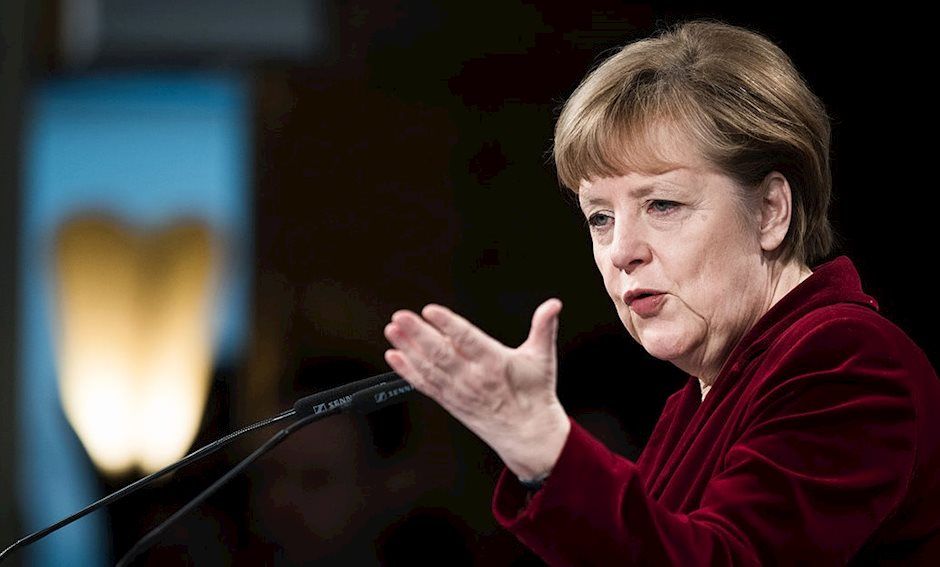Euro-zone economy: New German government needed to spend and lift the euro
- Germany is on the verge of a recession and may take the whole euro-zone with it.
- Monetary stimulus by Draghi and later Lagarde may be insufficient.
- A change of guard in Berlin may be needed for a significant difference.
- The euro may continue suffering until then.

The locomotive of Europe is at a standstill – if not derailing. We already know that the German economy stagnated in the year ending in June and contracted in the second quarter. More recent economic data has been unpromising.
Purchasing Managers' Indexes (PMIs) have come out above expectations – but continue pointing to an outright recession in the manufacturing sector – and some of the components hit new multi-year lows. The German IFO Business Climate already fell below projections.
The European Central Bank is about to introduce new stimulus, but its effects will likely be limited. Lowering rates to deeper negative territory will unlikely be of any help. It has failed to stimulate the Japanese economy and has only hurt banks – that is why a tiering system is on the cards.
Monetary stimulus is insufficient amid trade wars
Draghi's more powerful parting tool would be unleashing a new round of Quantitative Easing – by not only renewing the program – but also by loosening the capital key rules. It would weaken the euro, push imported inflation higher, and make European exports more competitive. In the best-case scenario, lowering borrowing costs would encourage some governments to spend more and to challenge Brussels.
As Draghi has already learned and Fed Chair Jerome Powell is also learning, ll this may be insufficient as US-Sino trade wars rage and cloud storms are gathering.
Austerity has been led by the German example, and unleashing of fiscal stimulus can only be conducted by Berlin as well. The old German model of exports has peaked out – as Chinese imports of German goods are slowing and weighing heavily on the economy. Germany is indirectly suffering from Trump's tariffs – without being hit by a single American levy on automobiles.
For a considerable change to occur, the euro zone's largest economy would need to take advantage of its ridiculously low borrowing costs and open its purse strings. That would an uphill task for a country that is used to saving money and where the word "schuld" means both debt and guilt. Moreover, parliament would need to change the constitutional debt brake.
Both Chancellor Angela Merkel and Finance Minister Olaf Scholz have taken baby steps towards fiscal stimulus – but these seem limited and may be too little, too late. Annegret Kramp-Karenbauer (AKK), the new leader of Merkel's CDU party, has vowed to continue the "schwarze null" policy of maintaining a small surplus. Jens Weidmann, President of the German Bundesbank, has pushed back against "action for the sake of action." While he referred to monetary stimulus, his words reflect the mainstream thinking in Berlin.
Winds of change need to come from Berlin
Draghi has repeatedly called governments to do more, but his words have fallen on deaf ears. Perhaps Christine Lagarde – who succeeds him in November – may use her political skills and ignite a change of heart by the German government.
Yet the change needs to come from within.
Merkel – which has flip-flopped on several issues in the past – may follow her baby steps with a bold change. However, the ever-cautious veteran leader seems reluctant to move. However, it may take more than a change in Frankfurt but also a change in Berlin – a new government – to undertake such a change.
AKK may abandon her current rhetoric if she inherits the chancellory from Merkel and has fresh political capital to spend. A new leader for the beaten center-left SPD may wish to differentiate the party from the CDU and alter the thinking in Berlin. The Green Party – which polled very well in the European elections – may convince Germans to spend money on the climate emergency. Or perhaps a government influenced by the extreme-right AfD may adopt populist policies.
If and when any of these scenarios happen and Germany begins spending, the common currency may begin rising again.
Currently, the elites are stuck in the old export model and the obsession for government surpluses. However, that may change sooner rather than later as economic reality has already begun biting.
Author

Yohay Elam
FXStreet
Yohay is in Forex since 2008 when he founded Forex Crunch, a blog crafted in his free time that turned into a fully-fledged currency website later sold to Finixio.

















